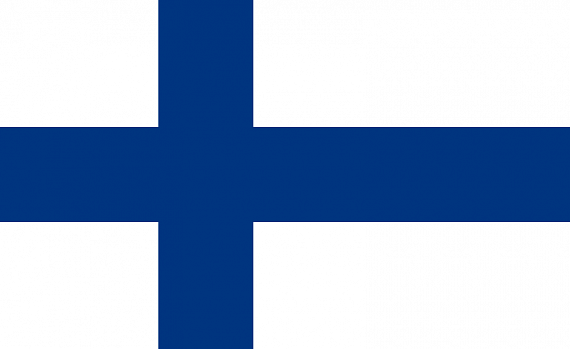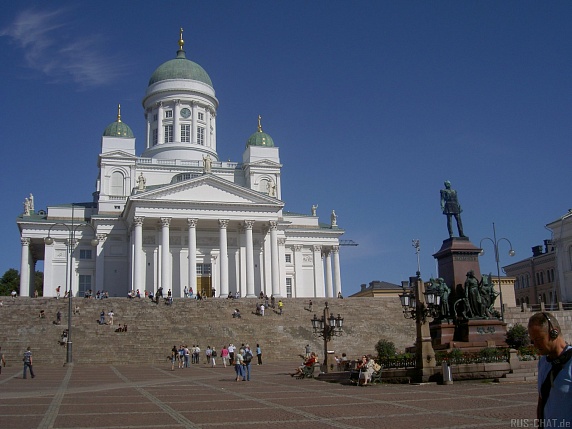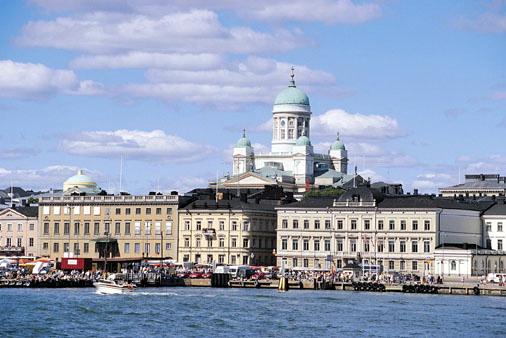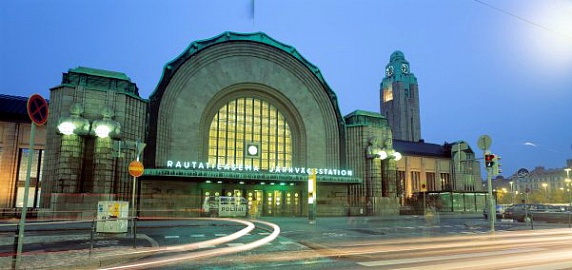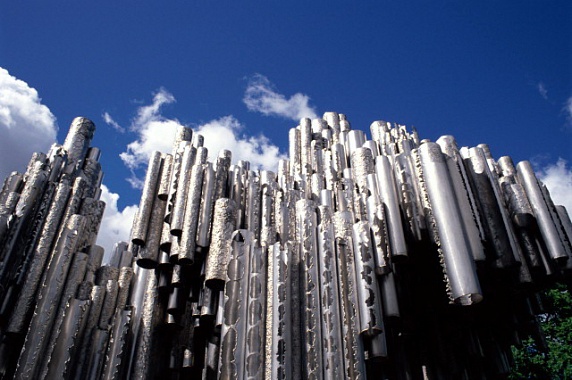 Finlande (la République de Finlande)
Finlande (la République de Finlande)
Foreign Minister Sergey Lavrov’s remarks and answers to questions at a news conference following his talks with Foreign Minister of the Republic of Finland Pekka Haavisto, Helsinki, March 3, 2020
Ladies and gentlemen,
First of all, I would like to thank our Finnish hosts for their hospitality. Today, I had a detailed conversation with President of Finland Sauli Niinisto and lengthy, intensive talks with my counterpart, Foreign Minister of Finland Pekka Haavisto.
Russia and Finland are good neighbours. We are developing economic, cultural, humanitarian and foreign policy cooperation in accordance with the agreements reached by our presidents during regular contacts.
Meetings that have included our interior ministers, foreign ministers, ministers of natural resources and environment, transport and justice ministers, the heads of customs services and investigative bodies have taken place over the past six to seven months.
Our inter-parliamentary ties are fairly intensive. Finnish Parliament Speaker Matti Vanhanen will complete his visit to Russia today. We have “friendship groups” and regularly hold joint meetings between our parliamentary committees. Of course, all of this makes our relations more meaningful, including personal contacts.
Today we noted the steady development of interregional, cross-border, cultural and tourist exchanges.
We talked about the importance of timely and thorough preparations for the 16th session of the Economic Cooperation Commission, including the drafting of the programme of strategic economic cooperation up to 2025.
We are carrying out large joint projects. First, I am referring to the Hanhikivi 1 nuclear power plant project and the expansion of Fortum in the Russian Federation.
We noted our very productive cooperation in multilateral formats in the north of Europe and the Arctic, in part, in the context of Russia’s chairmanship of the Arctic Council and Finland’s chairmanship of the Barents Euro-Arctic Council (BEAC), which start next year. As my colleague said, we will pay special attention to environmental measures.
We discussed human rights issues, including the situation with Jehovah's Witnesses. We confirmed our position that any NGO, including religious NGOs, should respect Russian law. Regrettably, the Jehovah's Witnesses in Russia made direct appeals to disregard Russian laws. Needless to say, we cannot agree with this.
We reviewed in detail the situation in the Baltic Sea, in part, in the context of President Niinisto’s initiative on confidence-building measures in this area.
We talked about our dialogue on security and confidence-building efforts with NATO members. We described what proposals we submitted for their consideration over a year ago. These proposals still remain unanswered. In this respect we can only conclude that NATO does not plan to develop specific de-escalation and confidence-building measures with us. Regrettably, this is being confirmed by the actions of the North Atlantic Alliance, primarily the US which is holding the Defender Europe 2020 exercises that are one of the biggest in many decades. We do not see any problems that would require a military solution in the region. Our proposals remain valid. Let’s hope that common sense will still prevail in NATO.
Once again, we reaffirmed our high assessment of Finland’s traditional policy of non-participation in military alliances, which we consider a very important factor in ensuring stability in the north of Europe and Europe as a whole.
We favour normalisation of relations between Russia and the European Union (EU). We regret that the EU followed the path of imposing sanctions against the Russian Federation following the illegal anti-state coup in Ukraine in February 2014, which Brussels came to terms with and supported. Now many Western scholars have published the facts that explain how this anti-state coup was prepared and carried out in Kiev in 2014. These facts are accessible. I think they make it abundantly clear how everything took place. I hope these new testimonials will be read in the EU. In any case, I believe that European values, as they are professed in the EU, certainly do not imply connivance with ultra-radicals and neo-Nazis or tacit consent for the reforms that are flagrantly violating the rights of national minorities in Ukraine, primarily in the language and education areas.
We reaffirmed reciprocal acceptance of the need to fully implement the Minsk agreements. We described the steps taken by the Russian Federation to ensure the implementation of this important document through a direct dialogue between Kiev, Donetsk and Lugansk as it requires. We showed the harm done by the attempts to stop altogether the work of the Contact Group where the dialogue is conducted.
In principle, Russia advocates carrying out what was agreed upon in any foreign policy issue or other matters. This also applies to the crisis in the east of Ukraine. This also fully applies to the situation in Syria, first and foremost, in Idlib. We agreed with our Turkish colleagues, a year and a half ago, on how to resolve the problem of the Idlib de-escalation zone and prevent the terrorists from dominating it.
We hope that in reviewing the situation in Syria our EU colleagues will certainly pay attention to the issue of illegal migration, as they are doing now. I hope in discussing this problem they will not forget the formidable threat linked with rampant terrorism in the Middle East, in part, in the Idlib zone.
In conclusion I would like to emphasise that at the end of next December it will be a hundred years since our countries established diplomatic relations. Today, we agreed to prepare events that will allow us to properly celebrate this date.
Question: Yesterday, President of Finland Sauli Niinisto said that a second wave of the migration crisis is expected. Did you discuss this issue at your meeting today? How can Russia use its authority to prevent this crisis and put an end to hostilities in Syria?
Sergey Lavrov: Russia has already done much in this context and explained in detail the motives behind its actions. Yes, we discussed the problem of Syria, in part, in connection with the events in the Idlib de-escalation zone, including issues of illegal migration and migration from this area to the EU in general.
Let me recall that the first large, unprecedented wave of migration from the Middle East and North Africa swept Europe in 2011 after NATO bombed Libya, having deprived it of statehood and turned it into a black hole through which weapons, drugs and people were smuggled to the south and migrants to the north, to Europe. In order to overthrow Muammar Qaddafi, the West did not shy away from direct cooperation with terrorists. The same plot was being prepared for Syria where a regime change was also planned.
In the same way the West encouraged radical, extremist and terrorist groups to take actions that almost brought about the downfall of the lawful government in Syria in 2015 when Russia sent its Aerospace Forces to curb the terrorist threat at the request of the legitimate Syrian Government.
We are fully aware of the complexity of the migrant problem for the EU. We are conducting a dialogue on migration with the European External Action Service (EEAS). We will continue this dialogue, and strive to help resolve this problem. However, we cannot facilitate a resolution of the migration issue by stopping the struggle against terrorism, as some politicians in Europe urge us to do.
The resolution of the problem lies in the full implementation of the agreements on the Idlib de-escalation zone reached by President of Russia Vladimir Putin and President of Turkey Recep Tayyip Erdogan in September 2018. Regrettably, they are not yet being carried out. I hope the upcoming meeting between President Putin and President Erdogan on March 5 will make it possible to change this situation and start implementing what was agreed upon.
Question: Foreign Minister of Ukraine Vadim Prystaiko said Kiev is working on a new version of the Minsk agreements. What does Russia think about this? Does Ukraine have the right to change them without the participation of the other sides?
Sergey Lavrov: The answer to your question is obvious – there is no alternative to the Minsk agreements. We again confirmed this at today’s talks. They were endorsed by UN Security Council Resolution 2202, thereby becoming part of international law.
We hear many specific ideas that clarify Prystaiko’s thoughts, including a statement on the need to disband government bodies in the self-proclaimed republics, introduce UN troops, establish control over the entire perimeter of these territories and only then hold elections. There have been other statements as well, including a statement from Ukraine’s leaders on its willingness to hold a dialogue with the residents of Donbass, but not with the residents who have chosen to organise everyday life.
Everything I mentioned directly contradicts the specific provisions of the Minsk agreements. I have already sent several messages to Foreign Minister of Germany Heiko Maas and Foreign Minister of France Jean-Yves Le Drian as participants in the Normandy format with an appeal to not ignore similar provocative statements from the authorities in Kiev. Regrettably, at this point our Normandy format partners have not taken any action.
At the same time, our French and German colleagues are not doing anything to persuade their Ukrainian partners to carry out what was agreed upon at the Normandy summit in Paris in December 2019. Instead, they are putting in the forefront as a goal in itself the convocation of yet another summit of the Normandy Four regardless of whether the previous agreements are fulfilled or not. We do not need empty summits for the sake of holding a summit. We have expressed this to our partners. They should concentrate on compelling the Ukrainian government to carry out the agreements on the disengagement of forces and weapons and mine clearance. Of course, Kiev must fulfil its part of the political reforms, primarily, permanently instate the special status of Donbass.
***
Sergey Lavrov (speaking after Pekka Haavisto): The older women Mr Haavisto saw crossing the contact line to get food have to do this because three years ago former President of Ukraine Petr Poroshenko imposed a complete trade, economic and transport blockade on Donbass, and current President Vladimir Zelensky cannot lift it.
